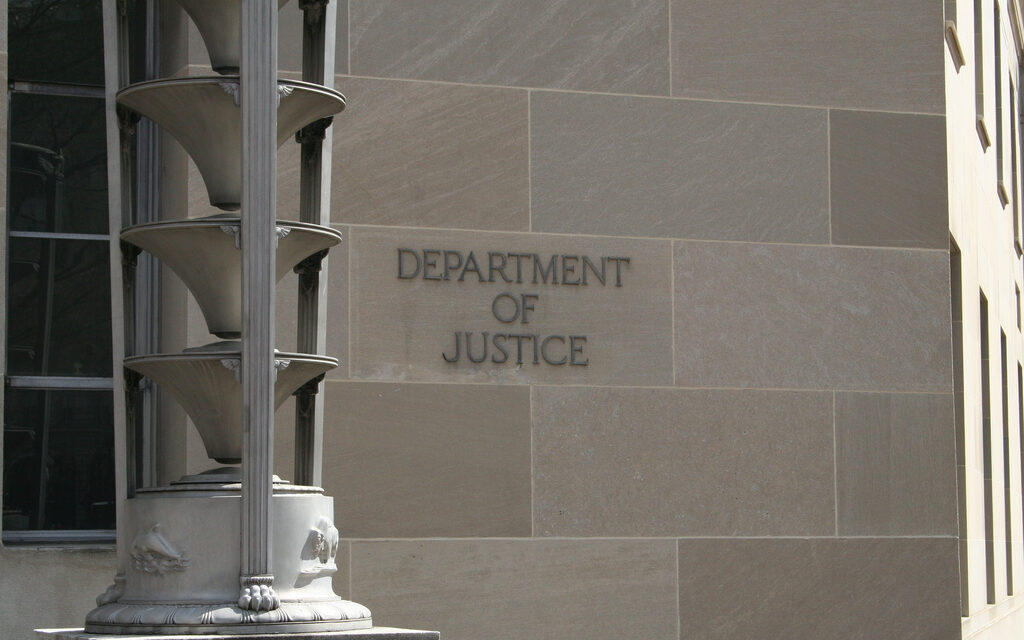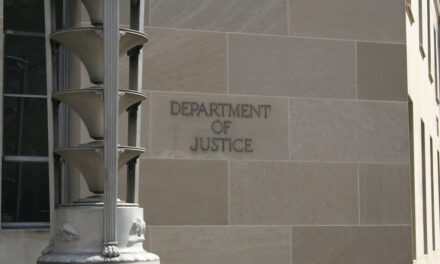Secret prisons holding unnamed prisoners in underground cells in unnamed places for undetermined time periods out of reach of any country’s law or of international law without any oversight by human rights groups or anyone but the jailers.
You read something as chilling as that and you want to squeeze your eyes tight shut and desperately avoid learning what you already know from the headlines: The dungeons described are American, even though they aren’t on U.S. soil, even though only a handful of our elected leaders were told about them, even though they violate every tenet of civilized behavior that we’ve been told we’re fighting to defend in the so-called war on terror. The prisoners are held incommunicado somewhere in Eastern Europe, apparently in an old Soviet compound. Why there? Well, for one thing, secret prisons are illegal in America.
So much for Ronald Reagan’s purloined but poignant “America is a shining city upon a hill whose beacon light guides freedom-loving people everywhere.” Rather, a new gulag for a new era. Another wonderful victory in the war on terror.
And exactly how is that war going these days? Shitty, according a new book on the subject:
Washington (Reuters) – U.S. terrorism experts Daniel Benjamin and Steven Simon have reached a stark conclusion about the war on terrorism: the United States is losing.
Despite an early victory over the Taliban and al Qaeda in Afghanistan, the two former Clinton administration officials say President George W. Bush’s policies have created a new haven for terrorism in Iraq that escalates the potential for Islamic violence against Europe and the United States.
America’s badly damaged image in the Muslim world could take more than a generation to set right. And Bush’s mounting political woes at home have undermined the chance for any bold U.S. initiatives to address the grim social realities that feed Islamic radicalism, they say.
It’s been fairly disastrous,” said Benjamin, who worked as a director for counterterrorism at the National Security Council from 1994 to 1999.
“We have had some very important successes getting individual terrorists. But I think the broader story is really quite awful. We have done a lot to fuel the fires, and we have done a lot to encourage people to hate us,” he added in an interview.
Their prescription?
U.S. fortunes could improve, the authors say, if Washington took a number of politically challenging steps, like bolstering public diplomacy with trade pacts aimed at expanding middle-class influence in countries such as Pakistan.
Washington also needs to do more to ease regional tensions that feed Muslim grievances across the globe, from Thailand and the Philippines to Chechnya and the Israeli-Palestinian conflict. In a Muslim world of 1.2 billion people, as many as three-in-four hold negative views of the United States.
Because anti-U.S. rhetoric often appeals strongly to impressionable youth, Benjamin and Simon believe many of today’s young Muslims will harbor grievances against the United States for the rest of their lives.
I can attest. In Tripoli, as recently as five years ago, my Libyan stepdaughter tells me, even though there was plenty of visceral support for Palestinians and considerable anger over the U.S. embargo even among Khadafi haters, you never saw extremist young men with long beards calling for jihad. Now you do. Despite everything, there was no real anti-Americanism five years ago. Now there is. One might mistakenly perceive this antipathy as ironic, given that Khadafi and the U.S. are pals, but it’s nothing of the sort. The widely hated Khadafi is now seen as a U.S. puppet.
Simon and Benjamin’s view that the U.S. is making matters worse ain’t exactly new. We’ve heard this in one form or another from a host of sources, from Richard Clarke to Zbigniew Brzezinski, from Larry Johnson to Michael Scheuer, who, in his book Imperial Hubris, wrote: “U.S. forces and policies are completing the radicalisation of the Islamic world, something Osama bin Laden has been trying to do with substantial but incomplete success since the early 1990s.”
The Defense Science Board’s report on “Strategic Communication” declared 14 months ago that when it comes to “the war of ideas or the struggle for hearts and minds, American efforts have not only failed, they may also have achieved the opposite of what they intended.”
There are many others who began such criticisms long ago. But Simon’s and Benjamin’s voices are certainly welcome because it seems to be taking most legislators and most Americans an insufferably long time to get the message and try to do something about it.
Seventeen months ago the Guardian took note that the Bush Administration had built a network of gulags.
Ten months ago, the Washington Post first let us know of the secret prison within a prison at Guantanamo.
Before that we learned of rendition, in which suspected terrorists like Abu Omar are grabbed off the street and disappear into a country whose intelligence apparatus’ sensibilities about torture are, conveniently, state secrets.
Now, we’ve learned there’s a “black” prison where? Georgia? Romania? Bulgaria? Poland? The Post knows, but as EZ Writer complains, the Post has been talked out of telling us where by the very same Administration that has been lying and concealing and manipulating about its war on terrorism for the past four years. Doesn’t matter. I’ll guess and say everybody will know where that prison is by Monday, latest.
Some will say that secret prisoners in secret prisons in secret places are better than the alternative that was discussed and discarded: whacking al Qaeda leaders in a campaign of assassination. Presumably the people who make such distinctions don’t have the problem I have: my marrow quivers at the thought that “my” government set up these prisons and would have concealed them forever if it could have. Crazy me. I thought being a shining city on a hill meant doing our utmost to dismantle all the world’s secret prisons, not build new ones.
[Crossposted at The Next Hurrah.]





